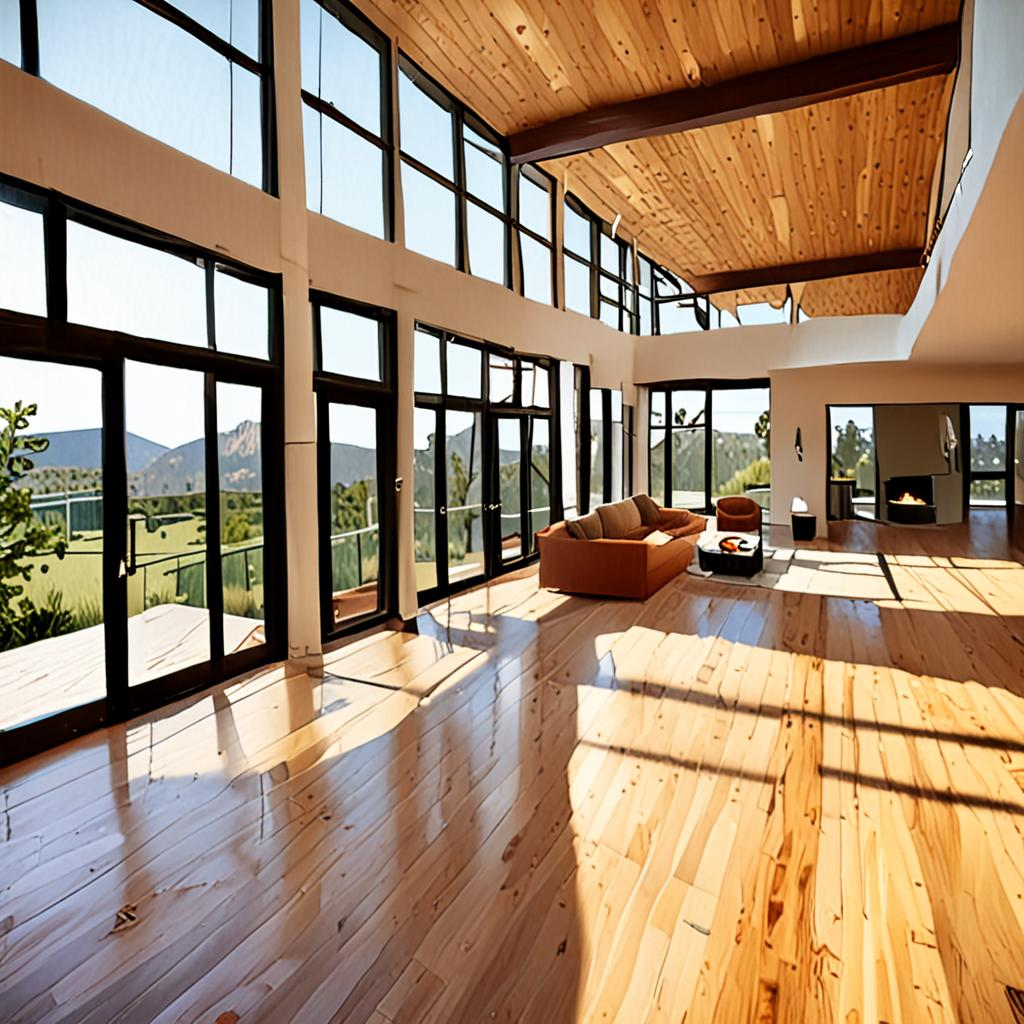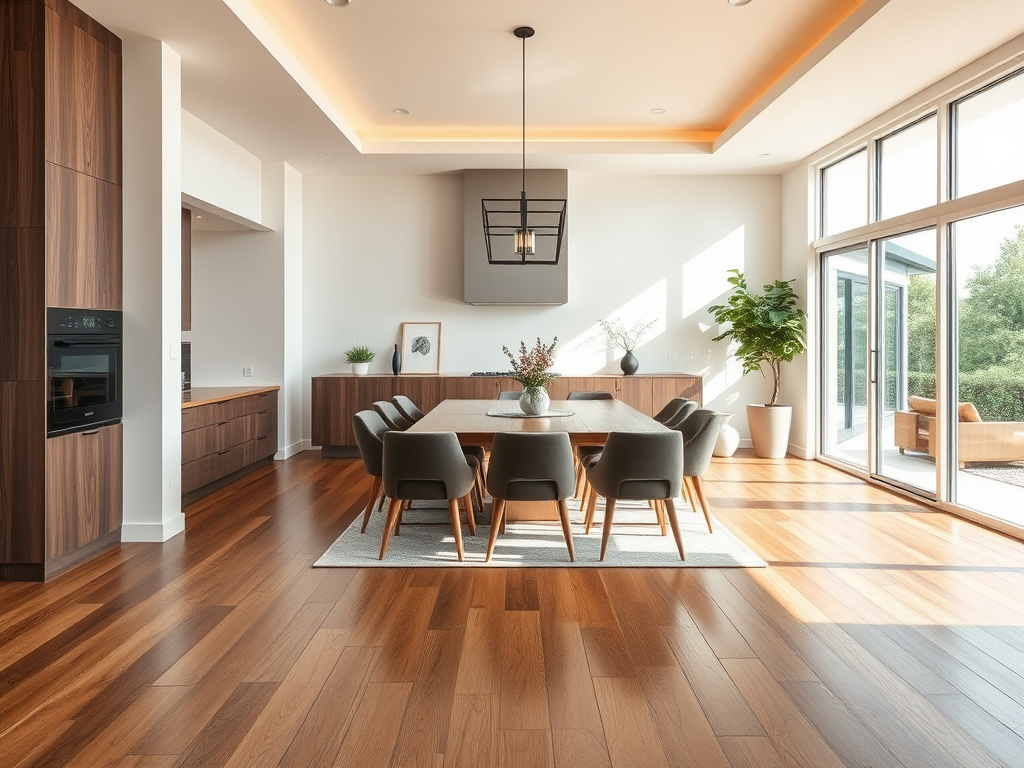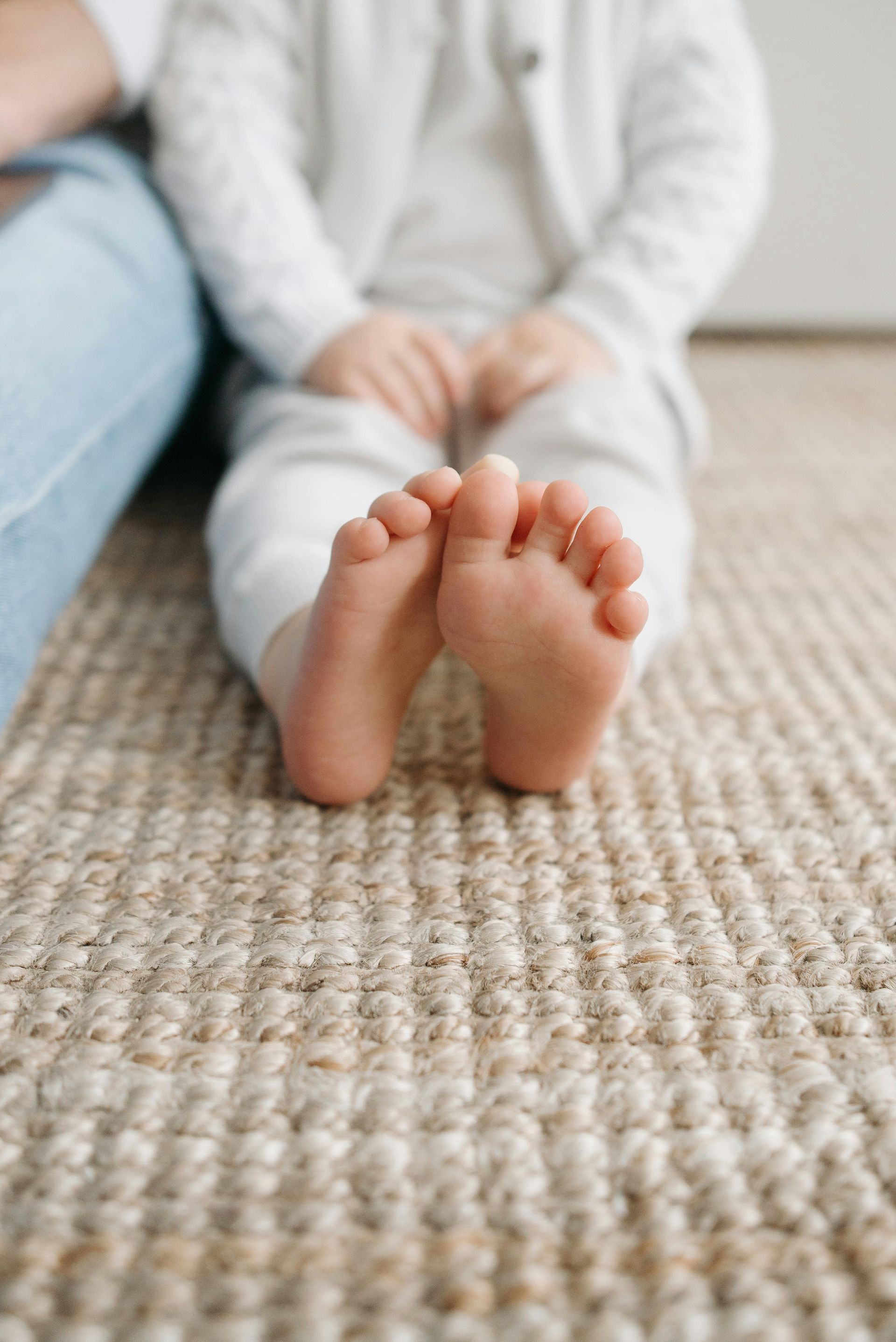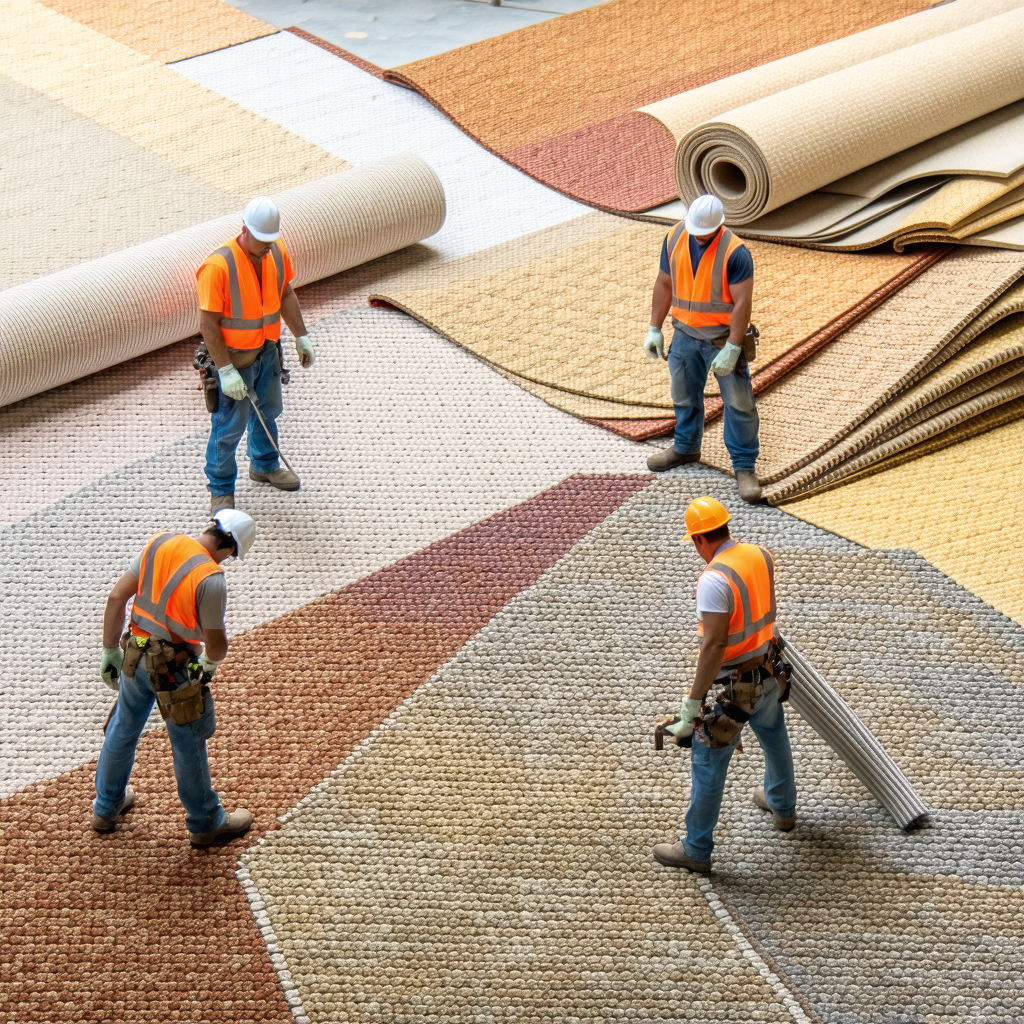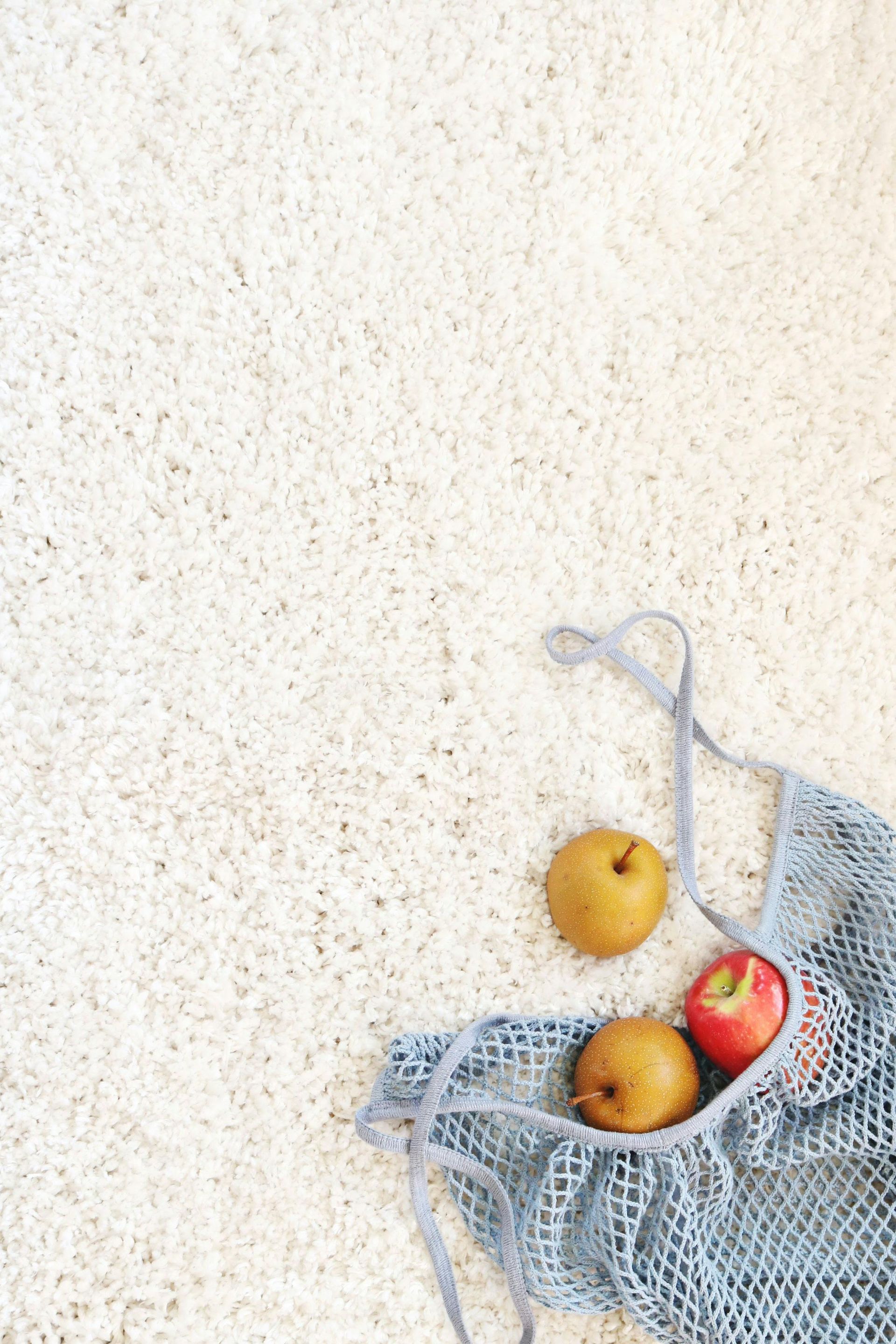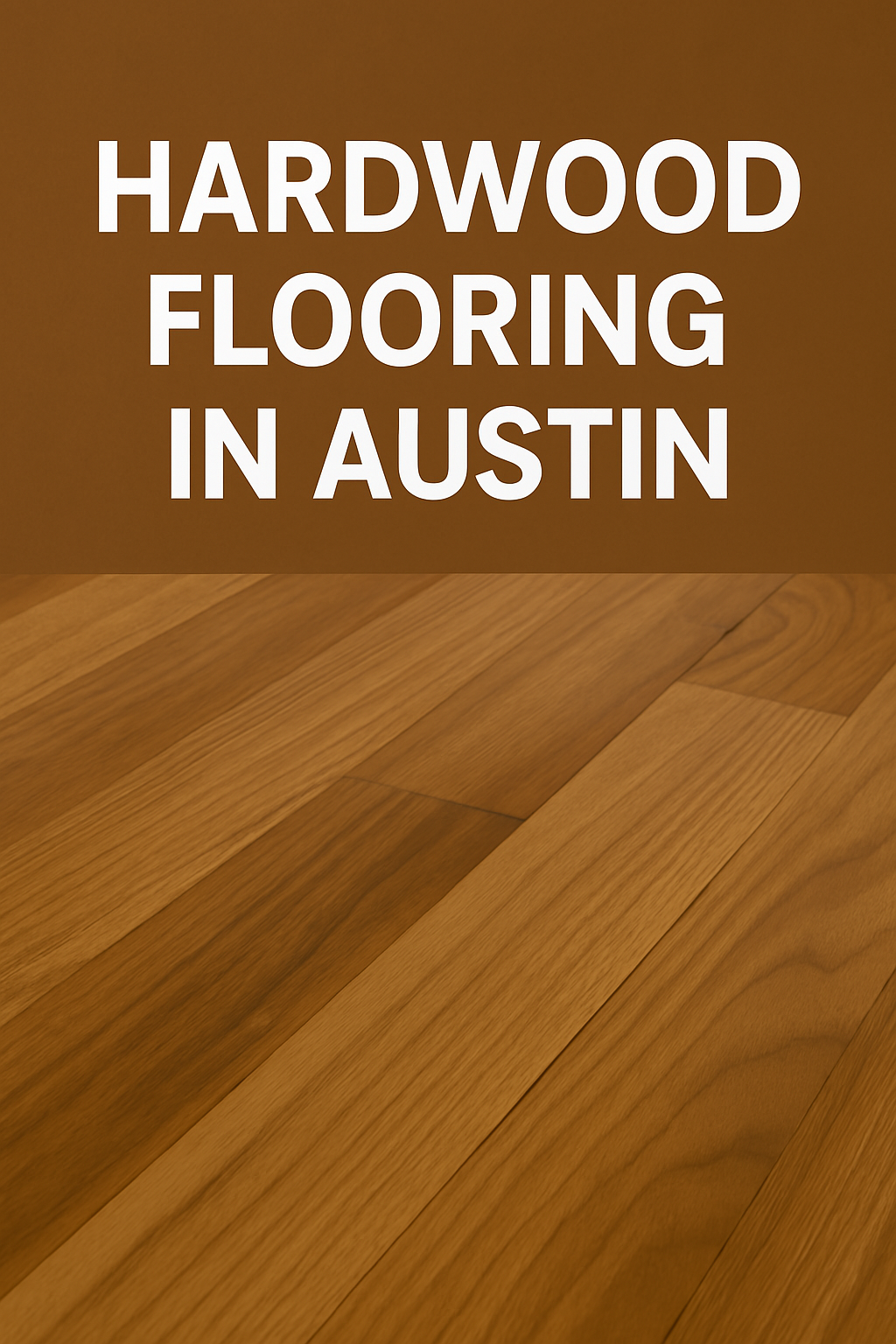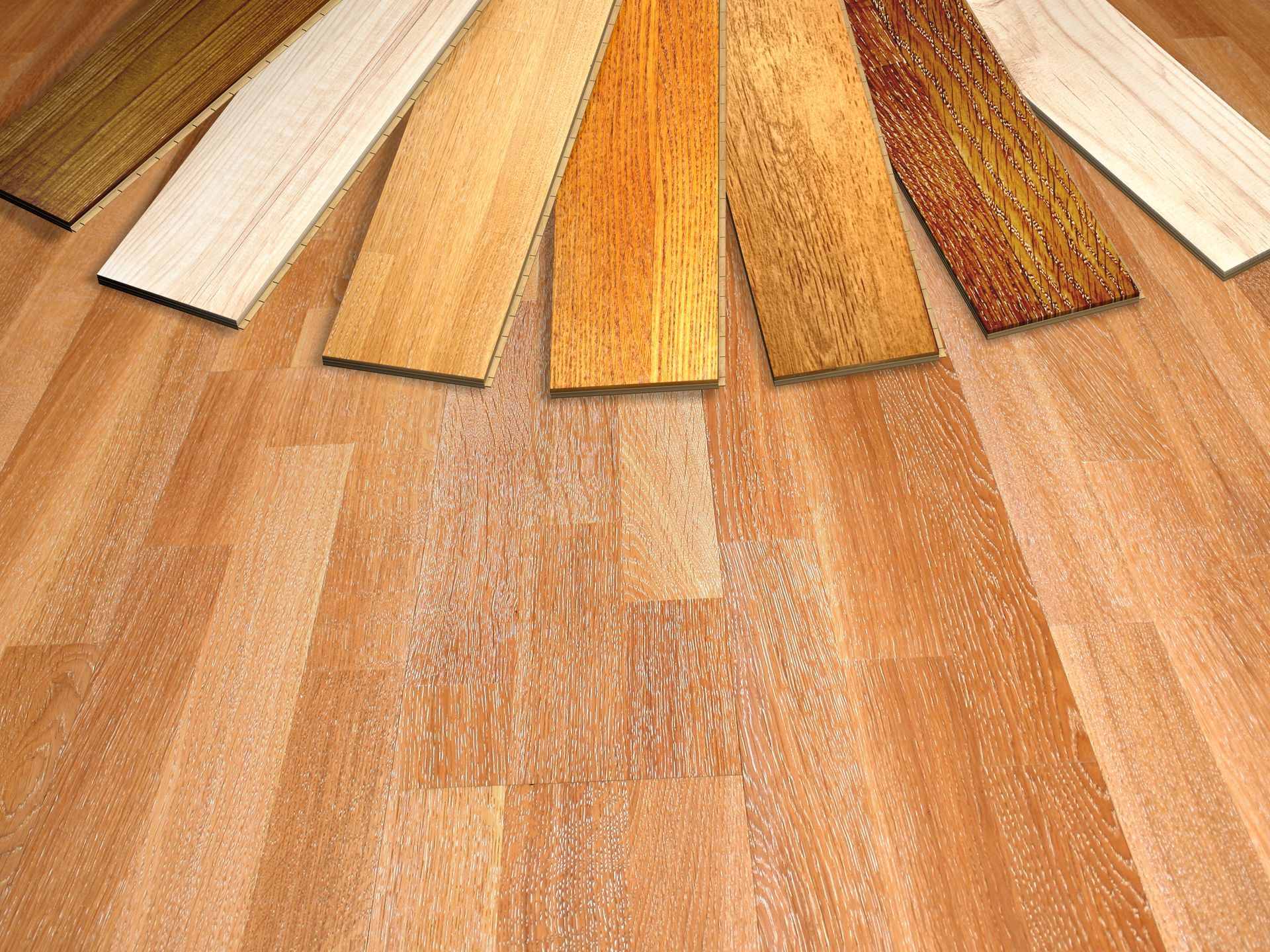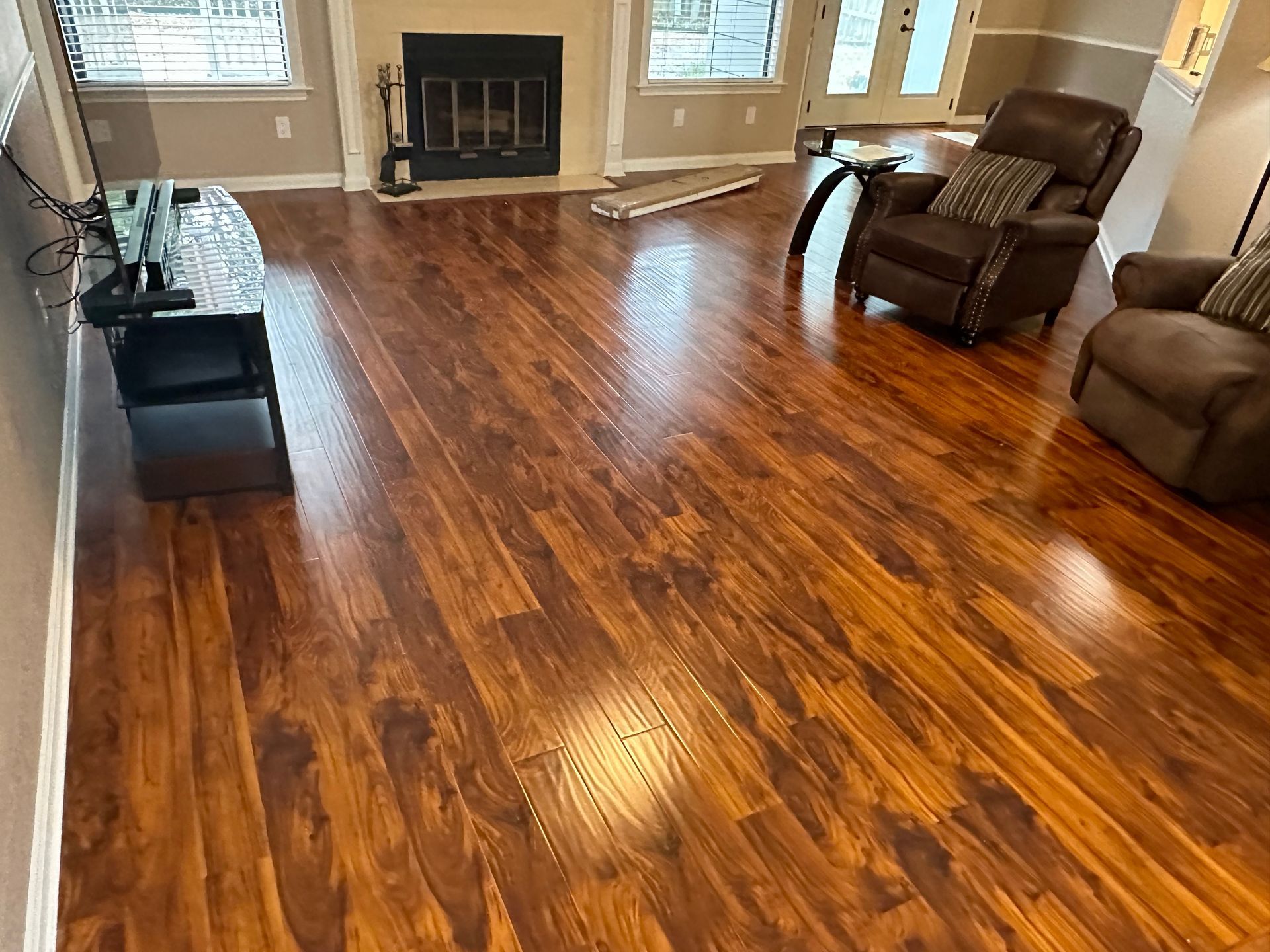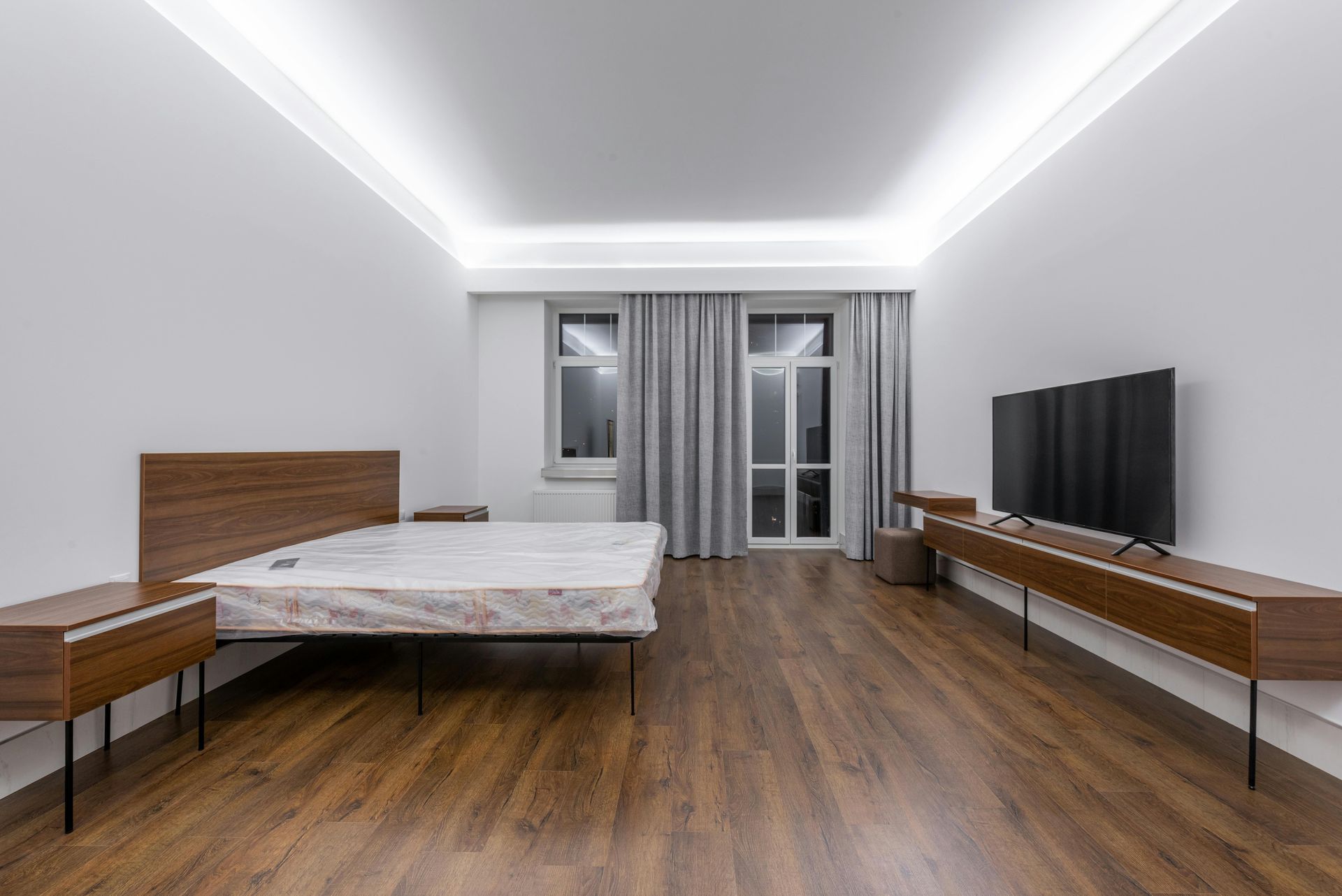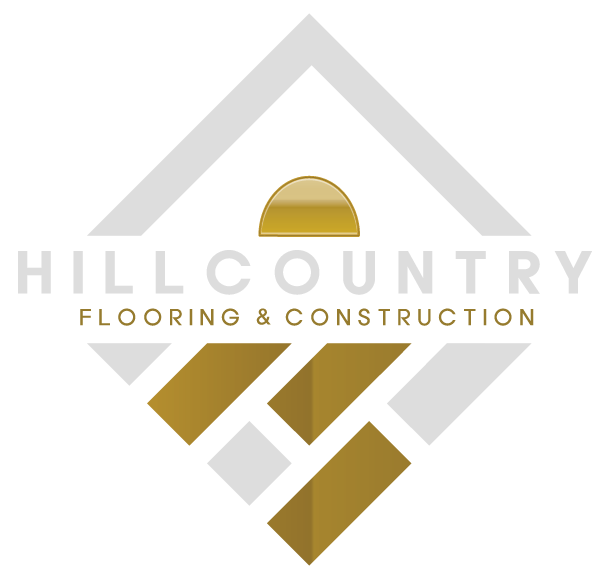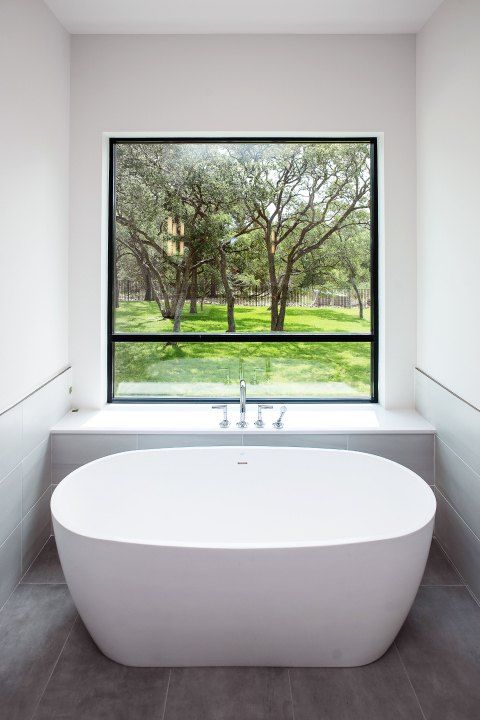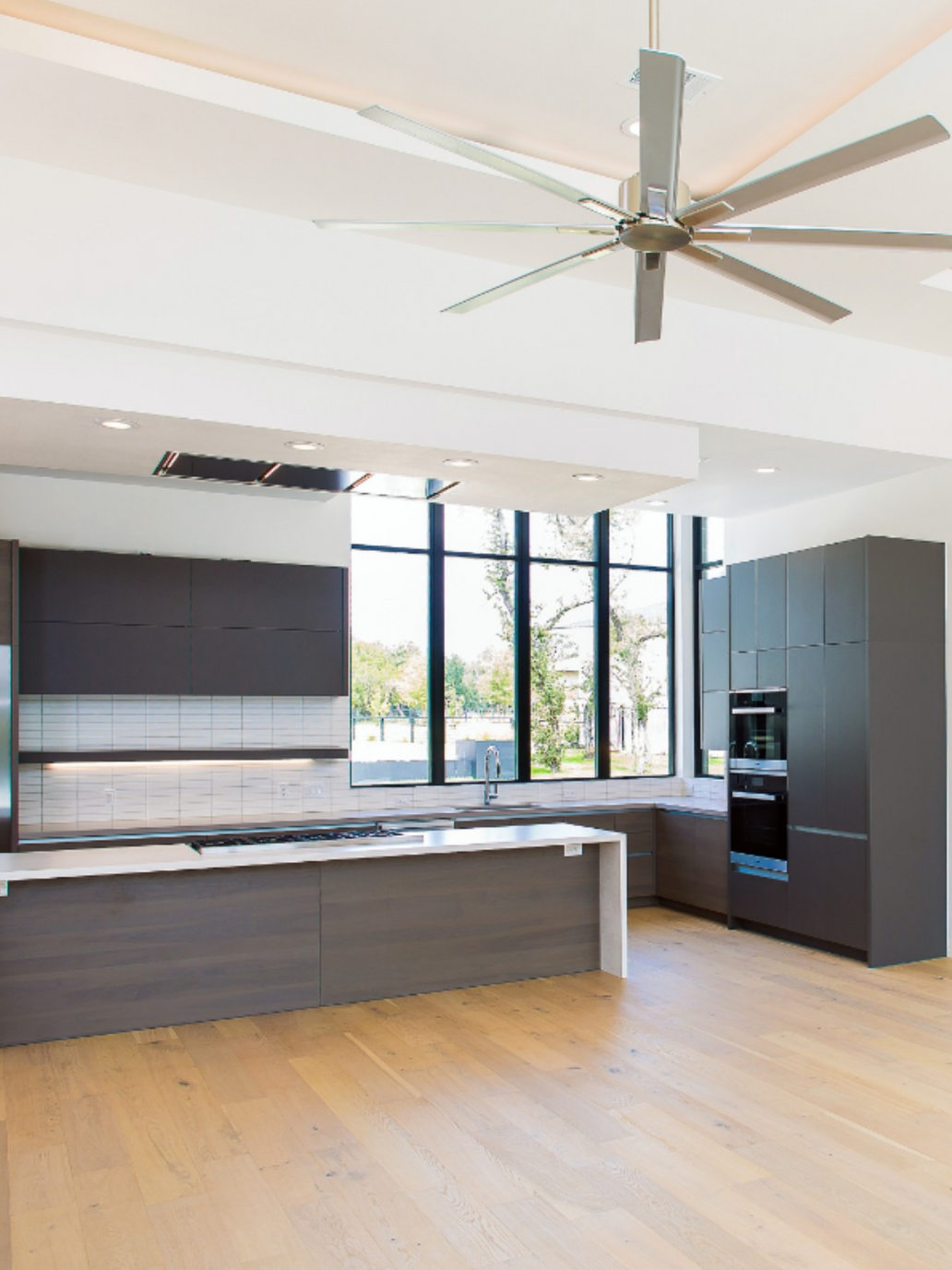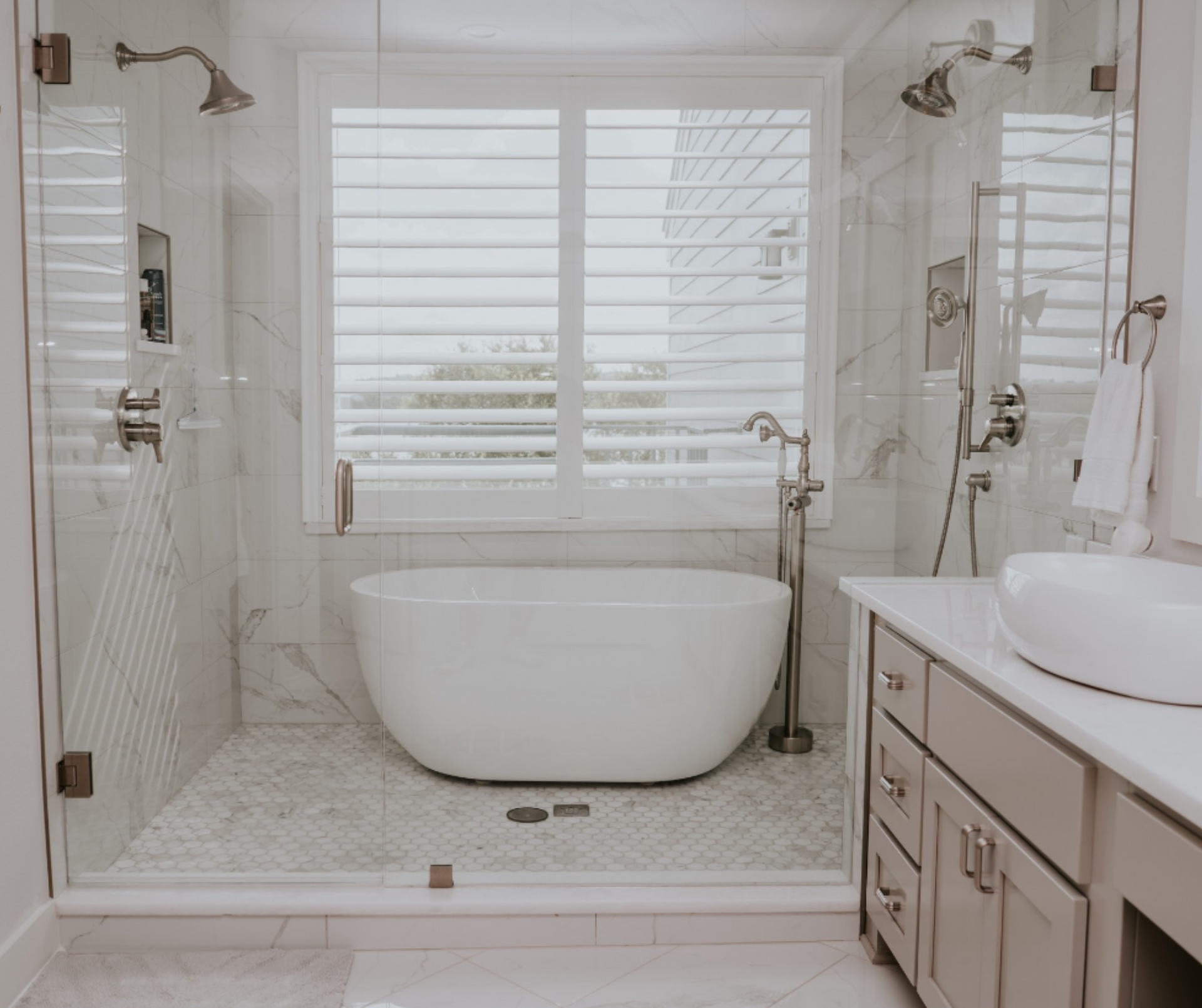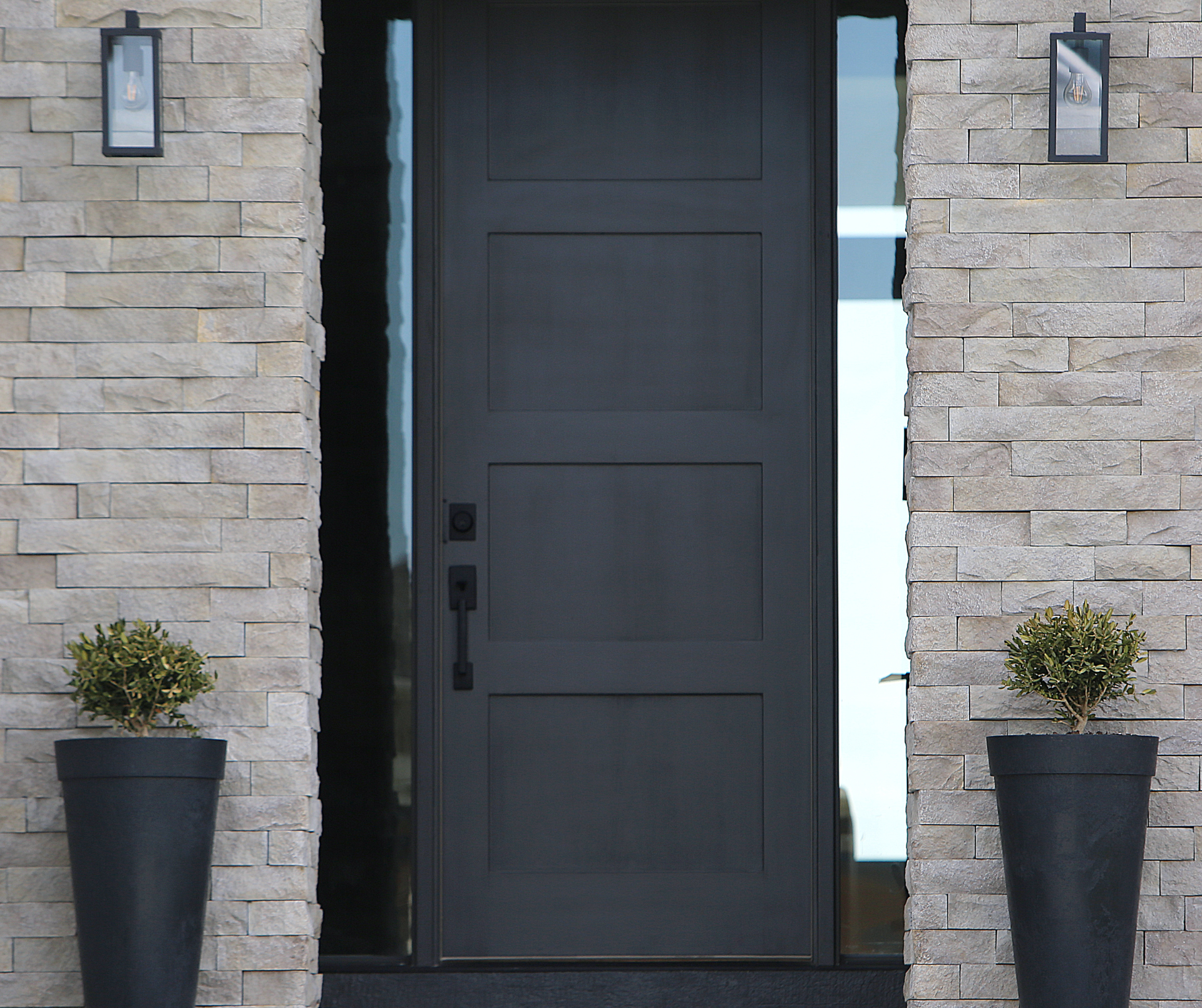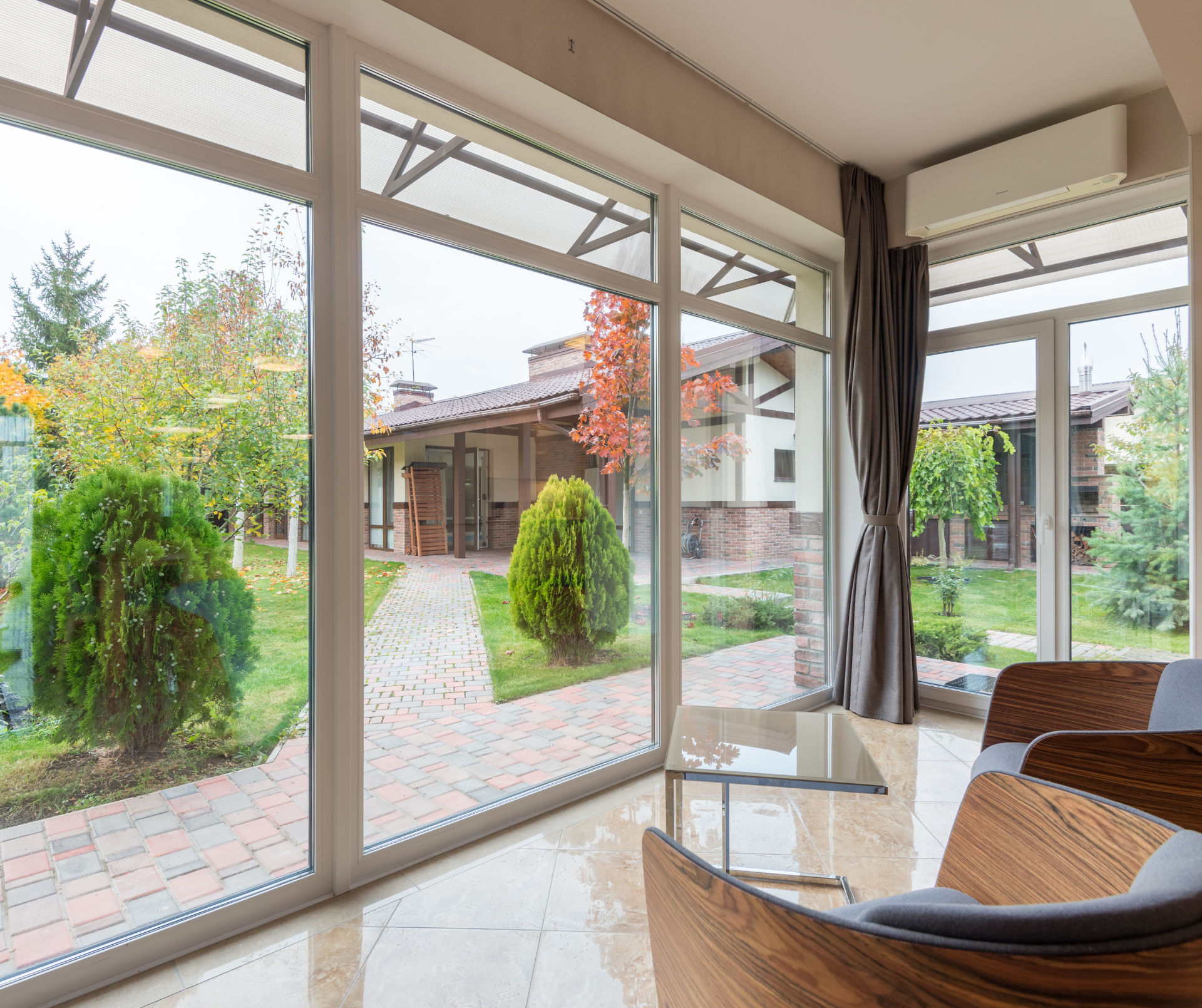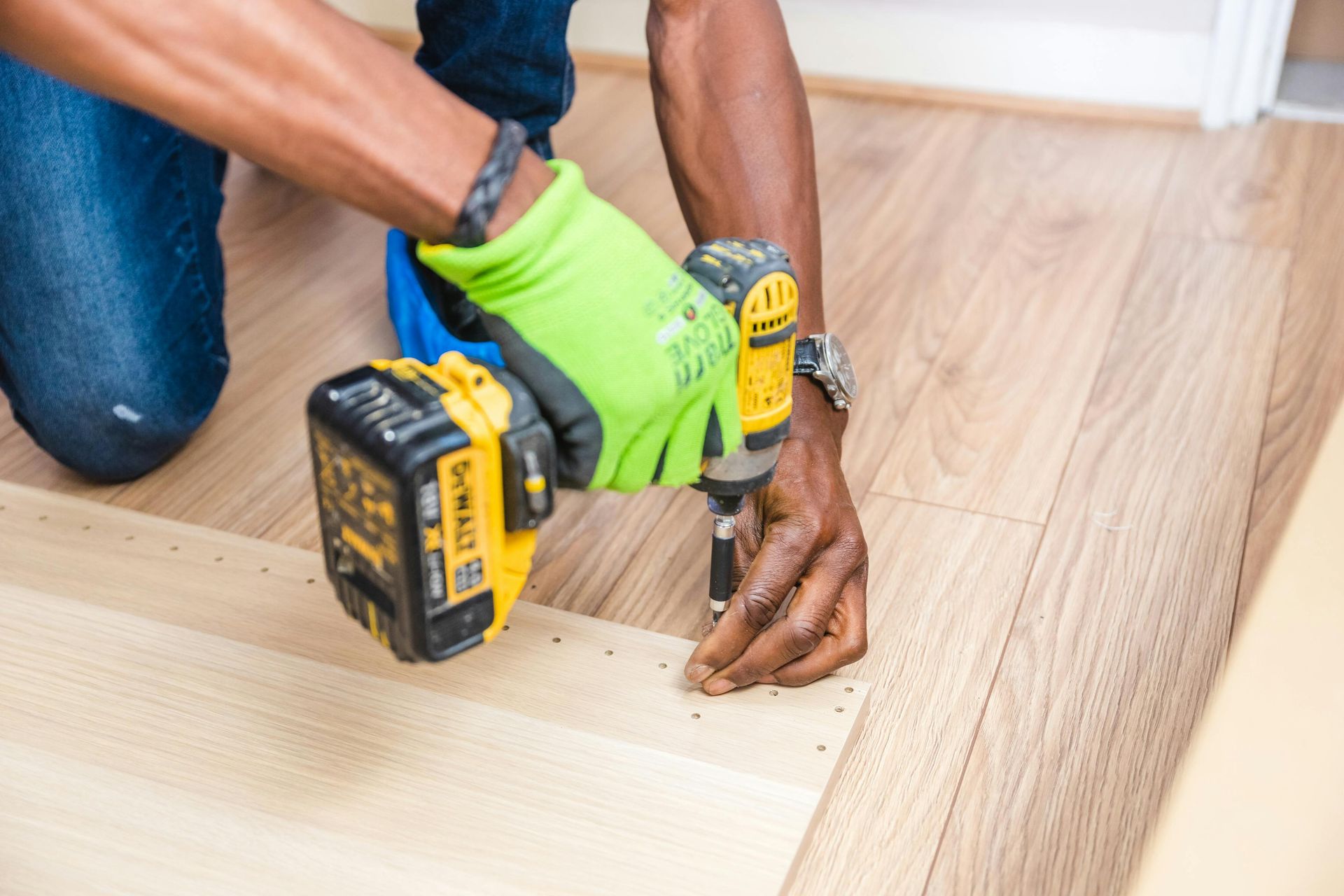By Chris Campbell
•
April 29, 2025
Choosing the right flooring can dramatically impact your home's beauty, durability, and value. At Hill Country Flooring and Construction, we specialize in helping homeowners find the perfect solution they will love and cherish. For many, the decision often comes down to two premier options: solid hardwood and engineered hardwood flooring. Location will also play a role as some areas are higher in humidity that others. While both bring natural elegance and long-term performance, each offers unique advantages depending on your space, lifestyle, and budget. What Is Solid Hardwood Flooring? Solid hardwood flooring is crafted from a single piece of natural wood, such as oak, maple, hickory, or walnut. Every plank is milled from one log and typically measures about ¾ inch thick. Because it’s pure wood throughout, solid hardwood can be sanded and refinished multiple times over its lifespan. Key Benefits of Solid Hardwood: Exceptional Longevity: Can last 50-100 years with proper care. Natural Beauty: Rich grain patterns and authentic character. Strong Resale Value: Highly desirable to homebuyers. Refinishable: Easily sand and refinish to restore like-new beauty. Best Places to Install: Living rooms Bedrooms Dining areas Main floors with stable humidity What Is Engineered Wood Flooring? Engineered hardwood flooring is built with a real hardwood surface layer, bonded to a core of plywood or high-density fiberboard. This layered construction gives it greater stability, helping it resist moisture and temperature changes better than solid wood. Key Benefits of Engineered Wood: Moisture Resistance: Ideal for kitchens, basements, and bathrooms. Installation Flexibility: Float, glue, or nail it down. Budget-Friendly: Often more affordable than solid hardwood. Eco-Conscious: Uses less natural wood, reducing environmental impact. Best Places to Install: Below-grade basements Kitchens and bathrooms Homes with radiant heating Areas with high humidity Solid vs Engineered Hardwood: A Side-by-Side Comparison Feature Solid Hardwood Engineered Hardwood Composition Single solid piece Multi-layer construction Longevity 50–100+ years 20–40 years (depending on veneer) Moisture Resistance Low High Refinishing Potential 3–6 times 1–2 times Price $$$ $$ Installation Methods Nail or staple only Float, glue, or nail Best Areas Dry, above-grade areas Anywhere, including moisture-prone spaces Durability: Which One Lasts Longer? Solid hardwood stands out for maximum durability and refinishing potential. Some homes have solid wood floors that have lasted generations. Engineered wood, while extremely strong, is limited by the thickness of its top veneer — the thicker the veneer, the more times it can be refinished. Moisture Resistance: Who Wins? Engineered hardwood is the champion for moisture-prone areas. Its layered core resists warping and expansion, making it the top choice for kitchens, basements, and bathrooms — where solid hardwood might struggle. Installation Differences If your subfloor is concrete, or you're installing over radiant heating, engineered wood is usually the best solution. It can be floated or glued easily. Solid hardwood requires nailing or stapling into a wood subfloor, limiting its installation flexibility. Cost Differences Solid Hardwood: Around $8–$15 per square foot. Engineered Hardwood: Around $5–$10 per square foot. While engineered wood offers a lower upfront cost, solid hardwood provides better long-term value due to its longevity and refinishing capabilities. Design and Style Options Both solid and engineered hardwood offer stunning design choices — from traditional oak to exotic teak. Engineered floors often allow for wider planks (up to 9 inches) without warping, giving modern spaces an expansive, luxurious feel. Finishes like hand-scraped, wire-brushed, and matte styles are available for both types. Environmental Impact Engineered wood is often considered more eco-friendly because it uses less hardwood per plank. Look for certified low-VOC finishes or FSC-certified products for the most sustainable options. Solid hardwood, while requiring more trees initially, balances out environmentally over time due to its century-long lifespan. Impact on Home Resale Value Both solid and engineered wood significantly boost home value. Solid hardwood is often perceived as a premium upgrade, especially in luxury markets. Engineered wood also impresses buyers, particularly in areas where moisture resistance is a concern. Which Flooring Option Is Best for You? Here’s the quick breakdown: ✅ Choose Solid Hardwood if: You want a floor that can last 100+ years. You have a dry, above-ground installation space. You prefer multiple refinishing opportunities. You want top-tier resale value. ✅ Choose Engineered Hardwood if: You need moisture resistance (kitchens, basements). You want wider plank options. You're installing over concrete or radiant heating. You prefer quicker, more versatile installation. Need Help Deciding? Contact Hill Country Flooring and Construction! At Hill Country Flooring and Construction, we specialize in helping homeowners choose the perfect hardwood flooring solution. Whether you're dreaming of the timeless elegance of solid hardwood or the modern durability of engineered wood, our team can help you select, install, and maintain the perfect floor for your lifestyle. 👉 Learn more about our hardwood flooring services here Ready to transform your home? Contact us today for a free consultation!ody content of your post goes here. To edit this text, click on it and delete this default text and start typing your own or paste your own from a different source.
